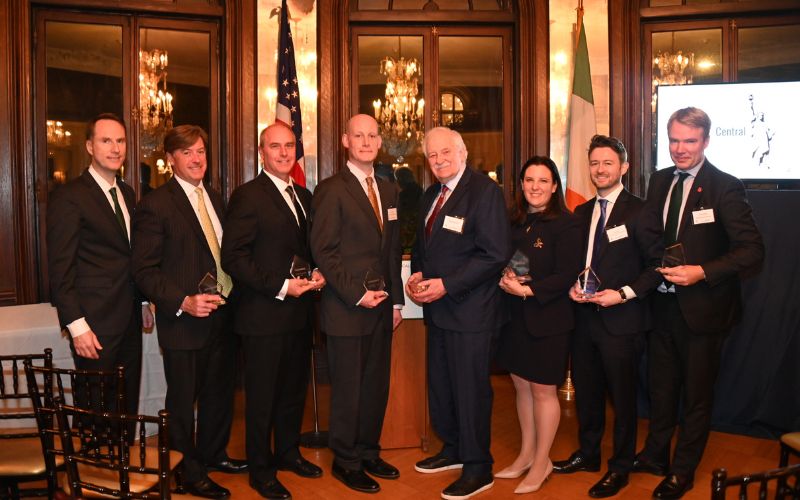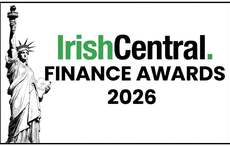Hear the first-hand experience of young Irish people living and working in the US in IrishCentral’s latest series on the J-1 graduate visa. We speak to recent Irish graduates working across a range of industries on their careers, motivations, and the highs and lows of their stateside adventure.
This week, the IrishCentral J-1 Graduate Visa Series looks at the construction management and estimating industry.
Our contributor for this entry has asked to remain anonymous. They work as a Chief Estimator in New York, coming to the States three years after graduation. This was made possible by the Professional Career Training Visa for which you must have a job offer secured first before moving to the country. More information on this visa can be found at http://www.usavisa.ie/pct.
Going for it
I decided to come to New York for a better choice of career. In Ireland, there are many jobs, but in America you can make it big. New York had matched my ambitions and ability and I wanted to travel to become more independent. It was either London or New York.
Acquiring a visa was quite easy once I hired an attorney who knew what he was doing. If I didn’t have him, I would be still filling out the forms. Once I got as far as the US embassy in Ireland, it was a lot easier as they knew I was going out to a certain company and I had guaranteed them I had enough money to sustain my life out there.
Job opportunities in the US
I was required to have a job offer before coming to the States as part of the Professional Career Training Visa and I was referred to an Irish company by a friend.
It’s very easy for the Irish to get work in construction out here. Americans know about the Irish workers’ ability to work and they know that they are great managers of people.
Irish people really look after each other out here and you can be assured that your job is generally safe once you are a good worker.
When I was going through the visa process, my boss was very understanding. He didn’t mind waiting on me once he knew I was going to be coming to him, so I give him my best every day for taking me in.
There were plenty of great opportunities once I began to look in New York. Estimators (good estimators) are very hard to get in NYC. You can make a lot of money estimating and it’s quite straight forward.
I believe that, in New York particularly, if you are hungry enough for work, and determined, you will get a job over anybody. It’s only unmotivated people who think that they stand no chance and say there are no jobs out there for them.
Working in a US office
The experience I’ve acquired here is due to the fact that I have a boss who wants to invest in his employees and get the best from them. My company is not very tightly structured which allows me more freedom and to gain experience I would never gain in a more professional company.
Many other people I’ve talked to have said the experience they gain in their companies is also good but work hours are long when you include travel etc. We do not have the travel problem in Ireland.
There are some differences between the Irish and American workforce. Americans are very motivated people. My teacher once told me a story about two people going to climb a mountain: one was Irish and one was American. The American group were yelling at him, telling him he can do it and nothing will get in his way but the Irish group were saying, “what if you fall or get hurt or lose your mind up there?”
That’s the biggest cultural difference for me. It’s very positive over here which helps you majorly in a work space.
I work in an Irish company so I feel fine and we all get the same treatment. We have Americans working in our company and they have options such as 401k, dental and child care etc., which we do not. If I were to secure a longer visa this option would be available to me
Living in New York has resulted in me having a professional approach to everything. In NYC, it’s all about relationships and networking. I find in Ireland that if you’re a hard worker, they don’t care about who you are or what you say, once you get the job done.
What difficulties did you face?
Finding a decent house was a major difficulty. I got lucky with my job but, again, I think that you can get a job anywhere once you have the confidence and that is not something everybody has. I can see how it can be difficult for other people.
Another difficulty I see people facing once they get to the US is not holding out for a career they are trained in or accepting a low paid internship when they are capable of much more. I think some people are very uncertain about themselves and just accept anything for a low wage.
One of the biggest difficulties has to be getting “that call” from home to say somebody has died. It’s happened to me and I had to travel home.
Apart from that, you have to remember that the place is expensive, you’ll have long hours of work, it can be lonely, and you’ll get no peace.
What do you wish you knew before coming to the US?
You should expect to have a horribly expensive house and not to have a nice landlord. I’ve found that the cost of living is quite high after living here for a while. I find it difficult to be home on time and cook dinners to save money. If I were more organized, I would possibly be able to cut my cost of living by a third.
Advice for future graduates
Everybody should go and do it. If you are a recent graduate, or even if you’re not, then do it. I paid for an attorney to look after my visa. It’s $1,000 on top of your visa fees but your paperwork will be 100% and no matter whether you graduated in 2011, in 2014, or are not a degree holder at all, an attorney will find you a way of getting you into the country on a visa.
This was the best decision I’ve ever made and I want to prove to myself that it will never be a regret.
Have you taken the plunge and moved to the US on the J-1 Graduate visa? Tackled the visa process, the job and apartment hunt and lived to tell the tale? IrishCentral wants to hear from you! Share your J-1 Graduate visa story with [email protected] to take part in our series and advise the next batch of US recruits.




Comments